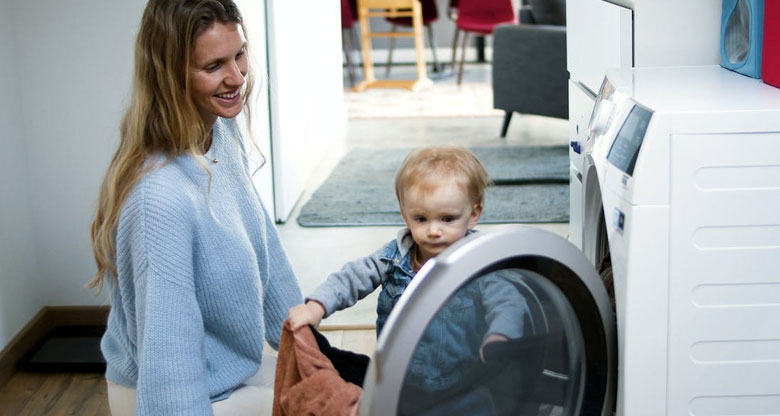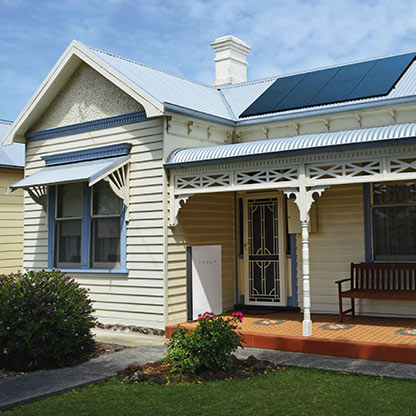Amber’s tips and truths about the ‘big hitters’
Air conditioner
It may come as no surprise that AC units can be energy guzzlers - using double the energy of other high energy appliances – but surprisingly, they can save you money when it comes to heating. Reverse cycle split system air conditioners are typically larger and more powerful than small portable heaters and a cheaper way to heat your home.
Clothes dryer
Besides not overloading your dryer, a useful hack to speed up drying is to put a dry towel in with your clothes.
Electric heater
You don’t need to invest in better home insulation if you close all internal doors and only heat and cool the rooms you’re in and seal off any obvious draughts. And remember, for each degree heating or cooling is increased, energy use will increase by about 5% to 10%.
Electric hot water system
Electric hot water systems are the most common types of hot water systems and can generate as much as 15-27% of your energy bill. You could look into buying a solar or heat pump water heater, but in the meantime an easy way to save is to install a more efficient, low flow showerhead - or take shorter showers.
Dishwasher
Wait until you’ve got a full load so you can get maximum dirty dish-washing returns.
Washing machine
Waiting until you have a full load and washing your clothes in cold water are simple ways to save energy and money.
Unlocking the grid
Beyond watching the consumption of individual appliances and how you use them, tapping into an energy plan that gives you access to wholesale energy pricing can make a big impact when it comes to costs - and your impact on the environment.
By running some of your more energy intensive appliances when prices fall in the wholesale market, you can not only save money but also drive up demand for renewable energy in the process.



